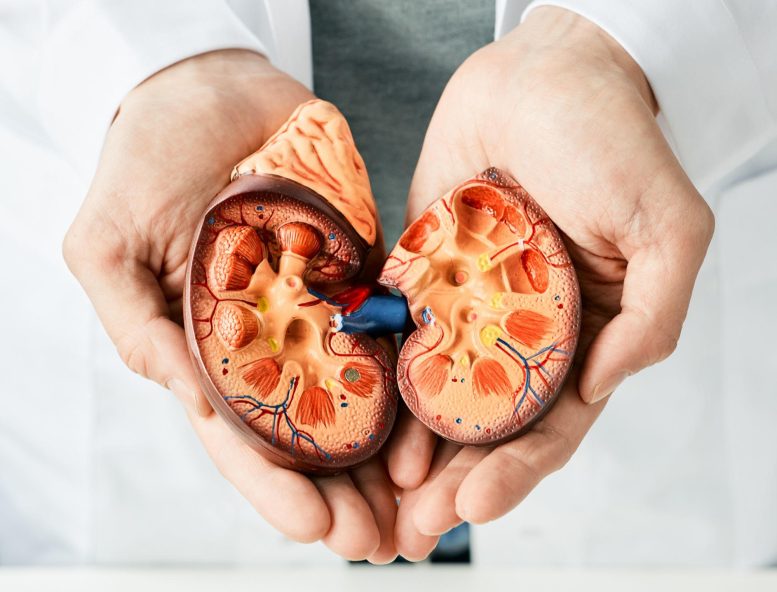
A new understanding of a protein linked to kidney and heart damage might pave the way for novel treatment strategies for chronic kidney disease, according to recent research.
Scientists, through a study conducted on mice, have discovered that a protein known as Indian Hedgehog (IHH) drives scarring in the kidneys and hearts. This protein is produced and emitted by specific cells in kidneys that are aged or damaged. Experts say further studies are needed to explore IHH as a potential target for therapies to treat chronic kidney disease (CKD) – a condition that affects 10 percent of the world’s population.
CKD is a term used to cover any form of kidney disease that continues for more than a few months. It can affect people of any age, but older people are more likely to experience some level of CKD. While CKD primarily causes damage to kidneys, it is also a major risk factor for accelerated cardiovascular disease and premature death.
Progressive fibrosis – scarring of the kidneys – is a common feature in all CKD, but the mechanism underlying this connection is not fully understood. A team from the University of Edinburgh identified a subset of epithelial cells – cells that makeup body tissue – that produce IHH and are only present within aged or injured mouse kidneys.
They showed that these cells produced IHH in response to being activated by the protein TNF – a well-recognized driver of inflammation. When blocking the actions of TNF or IHH in mouse models of kidney scarring, the team found that scar production in the kidney was reduced and kidney function was also better preserved. Increased levels of scarring in the heart also returned to normal levels.
In humans, the team showed that circulating IHH levels were significantly raised in patients with CKD. Patients with cardiovascular disease also had higher levels of IHH than those without cardiac problems.
The findings offer hope that blocking the TNF/IHH signaling pathway could improve both kidney and heart fibrosis problems – the leading cause of morbidity and mortality in patients with CKD.
Dr. David Ferenbach, MRC Senior Clinical Fellow at the University of Edinburgh and the senior author of this study said: “There is a major unmet need for better treatments to halt the progressive kidney scarring and cardiovascular problems which affect so many patients with CKD. I’m excited at the potential of this work, and the new insights to be gained into the role of IHH as a major driver of multi-organ fibrosis, which we hope can be a first step on the road towards better treatments for patients.”
Reference: “Indian Hedgehog release from TNF-activated renal epithelia drives local and remote organ fibrosis” by Eoin D. O’Sullivan, Katie J. Mylonas, Cuiyan Xin, David P. Baird, Cyril Carvalho, Marie-Helena Docherty, Ross Campbell, Kylie P. Matchett, Scott H. Waddell, Alexander D. Walker, Kevin M. Gallagher, Siyang Jia, Steve Leung, Alexander Laird, Julia Wilflingseder, Michaela Willi, Maximilian Reck, Sarah Finnie, Angela Pisco, Sabrina Gordon-Keylock, Alexander Medvinsky, Luke Boulter, Neil C. Henderson, Kristina Kirschner, Tamir Chandra, Bryan R. Conway, Jeremy Hughes, Laura Denby, Joseph V. Bonventre and David A. Ferenbach, 31 May 2023, Science Translational Medicine.
DOI: 10.1126/scitranslmed.abn0736
The study was funded by Kidney Research UK, the Wellcome Trust, and the Medical Research Council UK.